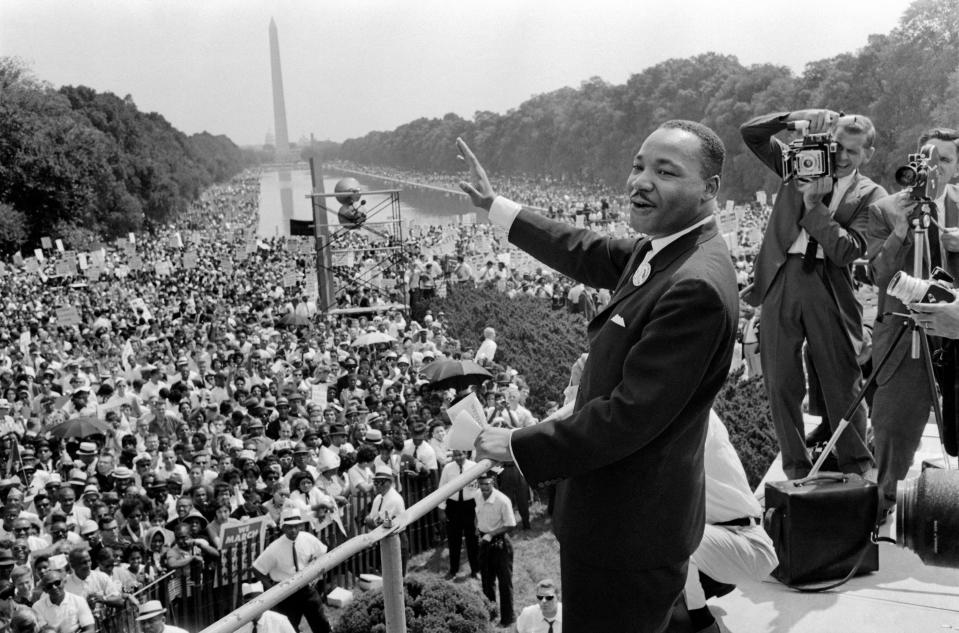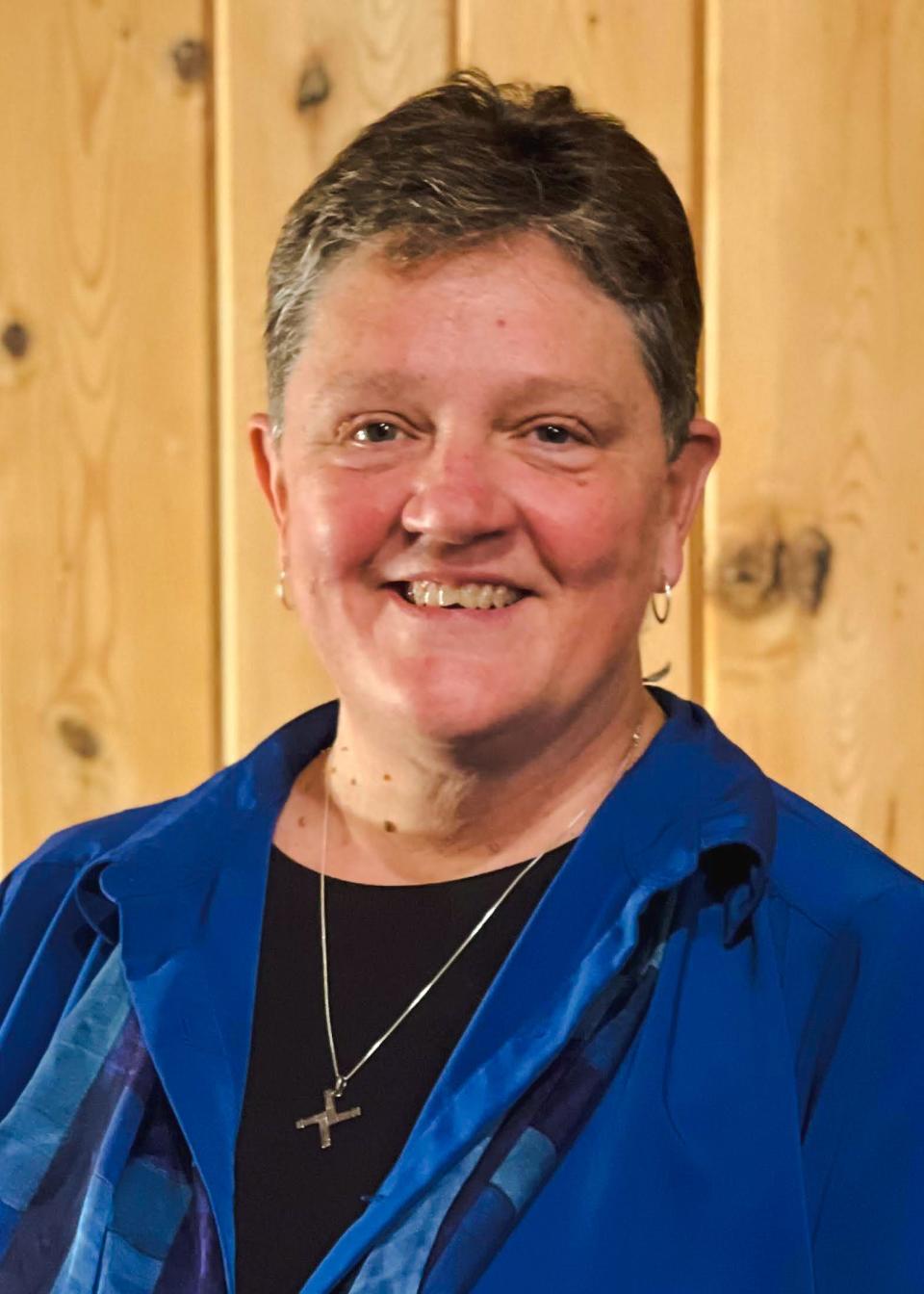Rev. Dr. Kim Buchanan: Dr. King’s Dream at 60: What Black history has taught me
- Oops!Something went wrong.Please try again later.
As I lifted the communion bread to bless it, I froze. It was Martin Luther King, Jr. Weekend in the early 2000s and I’d just shared a quote from Dr. King’s “I Have a Dream” speech that I include in every MLK Weekend communion service: “I have a dream that one day out in the red hills of Georgia the [children] of former slaves and the [children] of former slave owners will be able to sit down together at the table of brotherhood”.

As I lifted the bread that Sunday morning, the uncomfortable truth tore through me like a javelin. At the table of fellowship of which Dr. King dreamed, my place card would have read “Child of Former Slave Owners.” I continued with the liturgy, but that realization rocked me to my core.
It also began my education in Black American history. As with most southerners my age and older, in 5th grade American History, our teacher stressed that the Civil War was not fought over slavery, but over states’ rights. Hearing her explanation, I felt like I was learning something deep and grown-up. Silly child that I was, I had always assumed the Civil War was fought over slavery. My 5th grade self was relieved now to know the real truth.
But it wasn’t the “real truth.” The states’ right fiction didn’t teach me history; it protected me from it. It created a bubble where I didn’t have to feel bad about my family’s slaveholding past in Oglethorpe County, Georgia. If the Civil War was fought over states’ rights and not over the morally corrupt practice of enslaving human beings, then I could - without guilt - read the 44 names of enslaved persons bequeathed to my ancestors’ children in his will.
Unlearning the lie my 5th grade teacher taught us has invited me to face my family’s history. The journey has not been easy. Wrapping one’s mind and heart around the fact that one's ancestors enslaved other human beings takes time. Has learning what my ancestors did made me feel bad? You bet it has.
But knowing the deeper, fuller history of slavery, the Civil War, Reconstruction, Jim Crow, and the Civil Rights and Black Lives Matter movements, I am now better able to do my part in helping to heal our country’s history. As James Baldwin said: “Not everything that is faced can be changed; but nothing can be changed until it is faced”. We cannot heal historical wounds when they’re hidden from us. We can only heal wounds we can see.
As we mark the 60th anniversary of the March on Washington and Dr. King’s “I Have A Dream” speech, let us dream together of a country, a state, and a city that teaches everyone all our history so that we can, at last, begin to heal from it.

Rev. Dr. Kim Buchanan serves as pastor at United Church in Tallahassee. She's a proud southerner committed to helping our region and its people heal from our painful past.
JOIN THE CONVERSATION
Send letters to the editor (up to 200 words) or Your Turn columns (about 500 words) to letters@tallahassee.com. Please include your address for verification purposes only, and if you send a Your Turn, also include a photo and 1-2 line bio of yourself. You can also submit anonymous Zing!s at Tallahassee.com/Zing. Submissions are published on a space-available basis. All submissions may be edited for content, clarity and length, and may also be published by any part of the USA TODAY NETWORK.
This article originally appeared on Tallahassee Democrat: Rev. Dr. Kim Buchanan: Dr. King’s Dream at 60: What Black history has taught me

